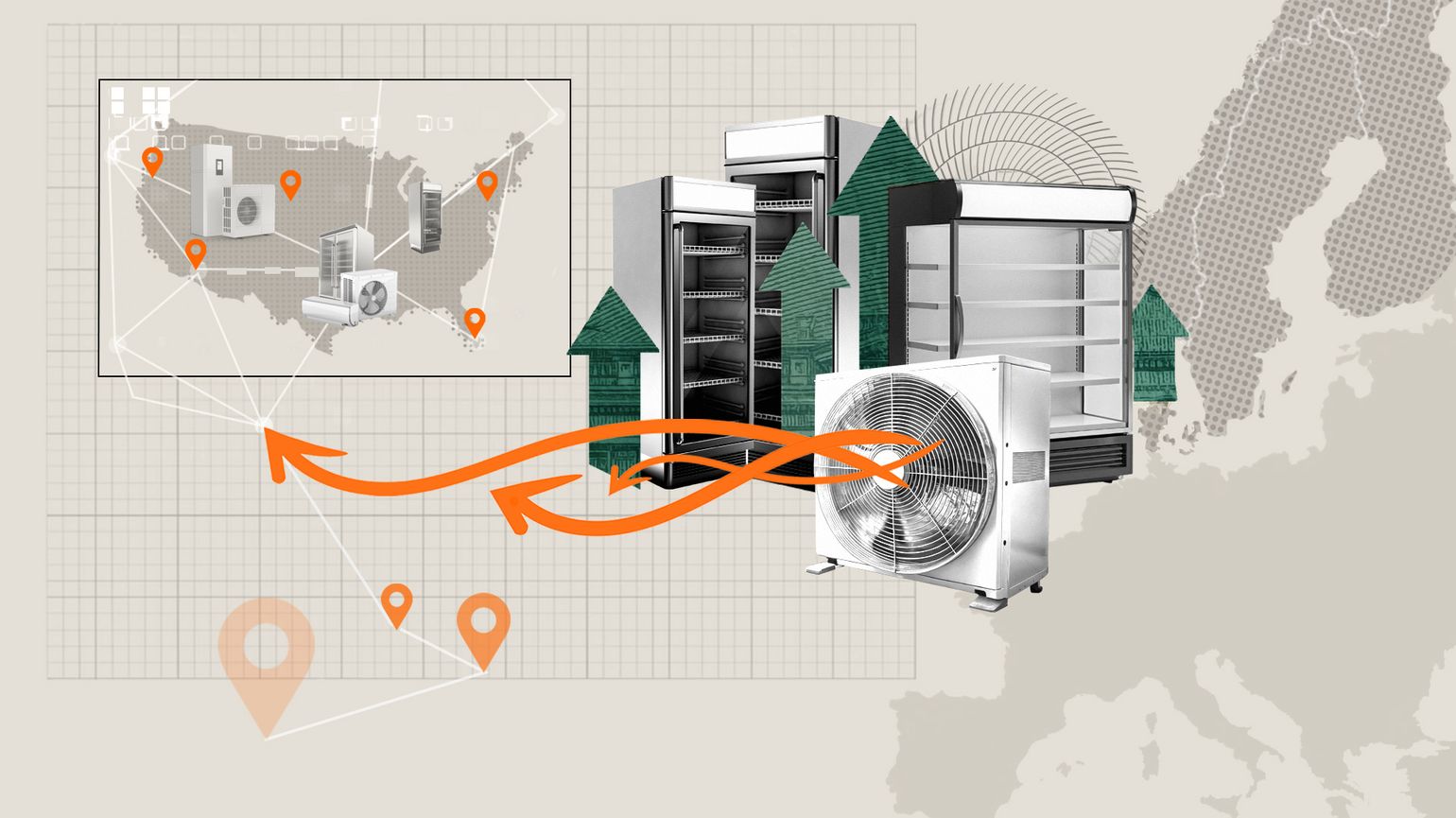A Rare Public Markets Deal Enabled Swedish AC Firm to Take On the US Market


The 159-year-old company is one of the world’s largest distributors of heating, ventilation and air conditioning and refrigeration units. With EQT’s support, Beijer accelerated its growth through M&A and a focus on innovation.
- Stockholm-listed Beijer Ref is one of the world’s largest distributors of heating, ventilation, air conditioning and refrigeration units.
EQT had been following Beijer Ref for years before the opportunity arose in 2020 to invest in the Malmö-headquartered distributor of heating, ventilation and air conditioning (HVAC) and commercial refrigeration.
“A layman might say HVAC distribution sounds boring, but it is one of the most attractive distribution markets that I have ever come across,” says Juho Frilander, an EQT Managing Director.
Several factors stood out.
Firstly, long-term, structural market growth driven by an expanding global middle class and tightening environmental regulations in response to climate change is leading to investment in heat pumps. Alongside this is the replacement of HVAC units that use harmful fluorinated greenhouse gases with units that use natural refrigerants such as CO2 or ammonia.
Moreover, HVAC equipment is complex and includes many moving parts involving heat, cold, condensation and pressure, which makes it prone to breaking. Ongoing servicing means distributors can support engineers when repairing mission critical office AC and warehouse refrigeration units.
Because the market is hourglass-shaped, with large numbers of original equipment manufacturers (OEMs) at one end and local installers at the other, only distributors have the available stock of spare parts close enough to customers.
Beijer specifically had the advantage of being the sole major distributor in Europe, in an industry primarily served by small, local players. Founded in 1866, it had enjoyed decades of impressive growth – between 2015 and 2020, for example, revenue had increased by 77 percent, and earnings before interest and tax (EBIT) by 83 percent – but despite international expansion, Beijer Ref wasn’t yet in the US, the world’s largest HVAC distribution market.
When EQT discovered that one of Beijer’s largest shareholders wanted to make a complete exit, the private equity firm snapped up the 29.6 percent position for around $1.1bn, buying the shares at a discount to the then-market price.
While EQT funds typically buy majority stakes, the cost of buying a controlling stake in Beijer would have exceeded the fund’s investment constraints for a single stake. Owning a minority position was unusual for EQT and meant the private equity team needed to work alongside other major shareholders.
Coordinating on strategy was an earlier task.
“It was incredibly important that we were aligned with other key shareholders about what we wanted to do with the company,” Frilander says.
Accelerating M&A
Scaling through M&A topped the agenda. Scale creates synergies not only through shared systems and back-office functions, but also by expanding the range of products and parts that each branch offers – a key competitive advantage in this sector.
EQT supported Beijer’s existing M&A capabilities by elevating the firm’s head of M&A to the senior management team and leveraged the acquisition expertise of new chair Kate Swann.
Beijer picked up the pace of acquisitions, inking more than 35 bolt-ons since 2021 – matching the number of such deals done over the previous two decades – including the 2023 purchase of Heritage, marking the group’s entry into the US market.
“It was a transformative acquisition, and EQT was instrumental in getting it done,” Frilander says. EQT supported due diligence and gave confidence to the board and management to launch the $1.3bn rights issue that funded the purchase of Heritage – equal to approximately a quarter of Beijer’s share capital, and at the time represented the largest rights issue in Sweden for more than 10 years.
“We brought a lot of credibility in the capital markets, which rewarded us for doing it, rather than sending the share price down.”
The result has been transformative, Frilander says, extending the M&A runway for the next decade in a market that is even more fragmented than Europe.
Opportunities in digital and sustainability
While Beijer’s strong performance history meant there was no need for any fundamental restructuring, there were opportunities for operational improvements.
These began in 2021 with the appointment of CEO Christopher Norbye and CFO Joel Davidsson, and the hiring of Beijer’s first chief digital and information officer, Kristian Lexander.
EQT’s digital team worked closely with Lexander to standardize enterprise planning and other software, which brought direct efficiency gains and allowed for better performance visibility for Beijer’s 500-plus branches. It also lent expertise to support Beijer’s e-commerce push, which last year accounted for 16 percent of sales, a key growth driver in HVAC distribution, which Frilander says can be “old school”.
Simultaneously, EQT supported Beijer’s sustainability efforts, as part of its wider strategy of identifying investment opportunities, like in HVAC, where growth trends align with environmental impact.
A critical example was the acquisition of CO2-based HVAC manufacturer Fenagy in 2021, marking Beijer’s diversification outside of distribution.
“It was very synergistic for us, as many OEMs don’t supply this kind of green technology, so Beijer could accelerate that,” Frilander says, pointing to the opportunity to sell into the US in particular.
“Beijer was already going in the right direction, thinking about green positioning like we do, as a big market driver. We doubled down on that and invested massively to boost production.
Partnership, returns and vision
After more than four years of EQT’s active ownership, Beijer Ref has accelerated both top and bottom-line growth. Net sales increased by 111 percent between the 2021 and 2024 fiscal years to 35.6bn SEK ($3.3bn), while EBIT increased 162 percent to 3.6bn SEK ($338m) as margins improved.
“The speed of doing things in the public markets is a little slower compared to private equity, but what’s remarkable about Beijer Ref is how we’ve been able to do everything in our base case and more – the US expansion was an upside case,” Frilander says. “It is testament that in the right situations you can do quite amazing things for value creation despite a minority role in a public setting.”
ThinQ is the must-bookmark publication for the thinking investor.




